Poppy & Power: The Ugly Truth In Manipur
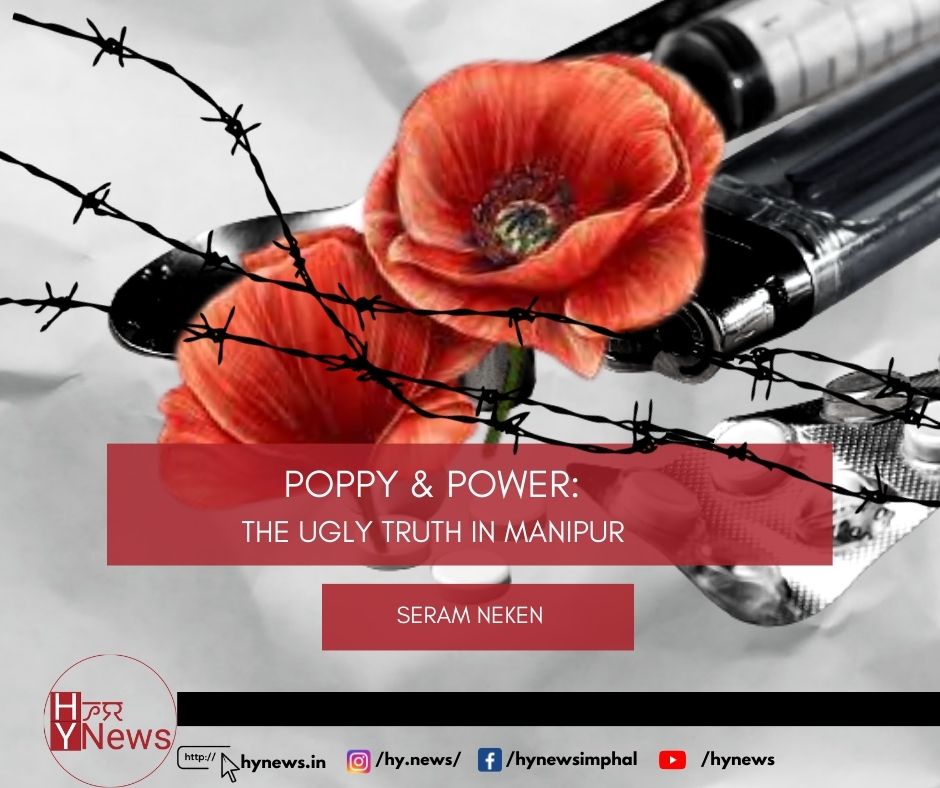
The ongoing mayhem in Manipur which has so far claimed hundreds of lives and thousands displaced, is in nature more of an external aggression to Indian territory than an ethnic clash between communities. Quite evidently, armed groups with sophisticated weapons from across the border are actively involved in killing people and burning houses in the periphery of Imphal valley. All this havoc appears to be a long-drawn gameplan of some powerful drug lords operating in the infamous Golden Triangle with a view to extend their business to the north east Indian terrain.
Everyone knows, the Golden Triangle, approximately 9.5 lakh square kms. situated at the junction of Thailand, Laos and Myanmar is one of the largest illegal drug producing regions in the world. In the late 1940s, due to the Chinese Communist Party’s harsh policies including compulsory treatment of drug addicts, execution of drug dealers and forcing of alternative crops to opium planters, opium production steadily shifted from China to the Golden Triangle region. In subsequent years, Myanmar became the world's second-largest source of opium next to Afghanistan.
Sharing 398 km border with Myanmar which is part of the “Golden Triangle” region, Manipur has been a major route of drug trafficking for years. Innumerable cases of arrest of drug traders have so far been registered in Manipur. Even the involvement of security personnel in drugs trade was evident on a number of occasions. As for instance, a Public Relations Officer of Defence Wing was nabbed at Pallel area of Manipur with narcotics worth over Rs. 30 crore way back in February 2013. By the 1980’s, poppy cultivation in small patches were seen in Manipur in some of the villages to cater to local opium addicts.
But during the last one decade or so, poppy plantation in the Manipur hills seems to have shot up alarmingly. Refusal of Myanmar Government to grant citizenship to Rohingyas and subsequent immigrations from across Myanmar to Manipur via the porous border have probably brought about a sudden surge in poppy growing business in the hill districts of Manipur. It is quite apprehensive that drug lords/cartels operating in the Golden Triangle have found a more viable place to undertake their drug manufacture business in north east India. India, being the largest democracy in the world and a champion of human rights, provides for lighter punishments to drug related cases. It has probably become a conducive place for the drug manufacturers and suppliers to easily carry on their illegal activities clandestinely.
WAR ON DRUGS: AN APPOCYLYPSE
To counter the alarming dangers posed by rampant drug use and illicit trafficking in Manipur, the state government under the leadership of Chief Minister N. Biren Singh launched the War on Drugs campaign in November 2018.
During the campaign, huge poppy plantations accompanied with deforestation and encroachments in forest lands have been gradually uncovered in Manipur hills. Subsequent initiatives taken up by the government for protection of forest land and environment, besides destruction of poppy plants, in the hill districts have probably erupted the angst of some groups who indulge in the multi[1]crore drugs business.
Armed militants with sophisticated weaponry have been found involved in poppy cultivation. Moreover, a huge chunk of immigrants from Myanmar, taking advantage of the leaky border, have been found infiltrated into Manipur territory probably to undertake the poppy cultivation activities. Noticeably, current turmoil in Manipur state is the outcome of the campaign against illegal drug business, continued poppy cultivation, associated deforestation and forest encroachments.
‘War on Drugs’ has in fact unfolded a tacit and dangerous effort of certain groups, which may well be presumed as a tendency to extend the activities of the Golden Triangle to the North East Indian terrain particularly Manipur hills. During the course of the War on Drugs campaign, Manipur Police department had arrested around 3,000 culprits, and not less than 2,000 cases have been registered under the Narcotic Drugs & Psychotropic Substances Act.
Till January 2023, poppy plantations on approximately 16,000 acres of land were destroyed. Besides destruction of poppy plants, arrest of drug traffickers continued on a war footing. To mention a few significant drives, on 20 June 2018, drugs worth about Rs. 28 crore were seized from the residence of one Lhukhosei Zou, the then chairman of the Autonomous District Council of Chandel district. In 2018, a Myanmar national escaped from Manipur even after drugs worth over Rs. 400 crore were seized from him. On 16 January, 2023, a police commando team of Kakching district arrested five police commandos of the same district and recovered high-quality heroin weighing over 1.14 kg and thousands of “World is Yours” narcotic pills.
Imphal Customs seized narcotic tablets and opium worth more than Rs. 2.7 crore, in Imphal on February 1, 2023. There were also instances of seizure of drug manufacturing units in Manipur valley. As part of the campaign, the Manipur Chief Minister met village chiefs of poppy growing areas and encouraged them to take up alternative cultivation. Meanwhile, a number of village chiefs and community leaders extended support to the War on Drugs campaign, thereby making the effort a mass movement. The government has also started using drones to spray chemicals to destroy the plants. During 2020-2023, the state government of Manipur arrested 80 poppy cultivators including 16 village chiefs under the War on Drugs campaign. Poppy cultivation is considerably widespread in Kuki dominated areas particularly Churachandpur and Kangpokpi. Out of the total area of 15,496 acres where poppy plants were destructed by state machineries since the onset of War on Drugs, at least 13,130 acres of the area belong to Kuki Chin community.
Poppy cultivation, besides being illegal from the drug control perspective, involves deforestation which badly affects the ecology and environment. Nowadays, almost 80 percent of the hills in Churachandpur, Kangpokpi, Senapati etc. have been deforested. Another alarming thing is the involvement of immigrants from Myanmar and the armed Kuki militants under Suspension of Operation in the poppy cultivation activities.
In fact, various steps taken as part of the ‘War on Drugs’ campaign have apparently hit the Kukis in poppy cultivated areas. Besides addressing the global issue of illegal drugs, the ‘War on Drugs’ campaign in Manipur has continuously intervened into the crises of environmental degradation and ecological imbalance in the entire north east India. So, the ongoing ‘War on Drugs’ in the border between India and Myanmar is more than a state issue, it embraces national as well as global character.
IMBROGLIO IN MANIPUR
Current imbroglio in Manipur, which literally culminated with the ‘Tribal Solidarity Rally’ of May 3, has nothing to do with the tribal group’s opposition to Scheduled Tribe status demand of the Meiteis, nor has it a communal character in nature. It is most likely orchestrated by drug lords well in advance to establish their political and military sway over areas where they can pursue their business. Hence, in order to counter the challenges thrown by the state government in the form of destruction of poppy plants and subsequent eviction of illegal encroachments in hills, drug lords probably colluded with the Kuki politicians, armed militants and certain civil society bodies to instigate enmity between Kukis and Meities thereby enlivening the age-old concept of ‘Kuki State’ in the form of demanding a ‘Separate Administration’.
Ongoing turmoil is very much related to immigrants, encroachments and deforestation, as is evident from the fact that the warring Kukis mainly targeted forest offices while expressing their dissent. During the so-called Tribal Solidarity Rally on 3rd May 2023, the rallyists in Churachandpur district resorted to vandalising and burning of the Forest Beat Offices at Bungmual village, Mata Mualnam village, Saikot village, Singhat Mission Veng and S. Kotlian village. Earlier on 29 April 2023, Forest Office at Tuibong in Churachandpur was burnt by a mob protesting the planned visit of Manipur Chief Minister to Churachandpur for inauguration of an open gymnasium. Prevailing mayhem is in nature more of an external aggression as part of the notorious narco-terrorism, than of an ethnic violence between Kukis and Meiteis.
The origin of some of the leaders of armed groups currently under Suspension of Operation with the government and also relatives of high-profile politicians demanding Separate Administration can be traced to the neighbouring country Myanmar. Use of sophisticated weaponry in the clashes is also ample proof that powerful foreign hands are very much at the helm. Armed attackers in the hills are also seen wearing ‘Lungi’, which is a traditional costume of Myanmarese.
Since May 3 last, Manipur has been burning like anything. Hundreds of innocents killed, thousands of people rendered homeless. Even after 40 days of the violence, peace seems a far cry in Manipur. Apparent negligence and lack of sincerity from the end of the BJP Government in the Centre has been fuelling the anger of the people of almost all communities. Besides being a movement demanding Separate Administration by the so-called Kuki elites, it has become a humanitarian crisis affecting the general populace of all communities. When the supply of essential commodities is halted due to the blockage of highways by the Kukis, people of all hues suffer tremendously. Not to talk of a balanced and impartial political solution, the immediate need of the hour is to rehabilitate the displaced and homeless poor villagers of both communities, and ensure free flow of essential commodities to the people of the state.
Since the current situation is the outcome of the War on Drugs campaign and also in the form of external aggression from across the border, the government of India has to feel the seriousness and act promptly to save the unity and integrity of the nation. CONCLUSION Had the state Government led by N. Biren Singh not initiated the ‘War on Drugs’ campaign in Manipur, had the Manipur Chief Minister not resorted to destruction of poppy plants in Manipur hills, a new Golden Triangle would have freely emerged in India’s North East region. Manipur, being a potential pivot for India’s Act East policy connecting India with South East Asian nations, would become an insurmountable security challenge, if the problem of drug trafficking is not tackled on time with due seriousness. It is a bold step taken up by the Chief Minister of an Indian state to save the future generation from the impending peril of drug abuse and illicit trafficking. Current turmoil in Manipur state, being a part of the global war on drugs, calls for worldwide attention.
The writer is Seram Neken, Imphal based columnist. He is available at [email protected]

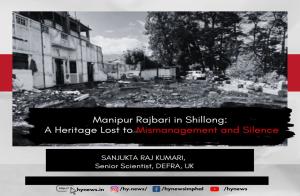









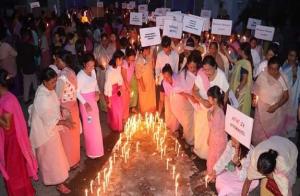



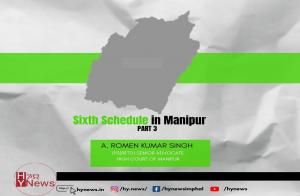
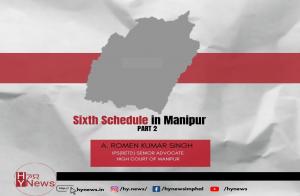




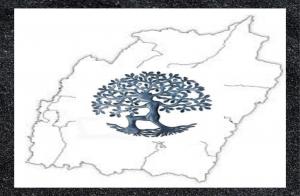














Leave Comments